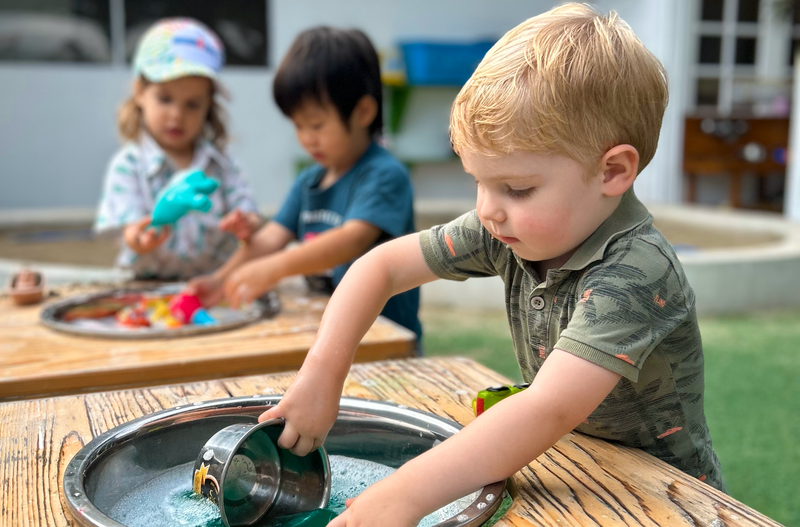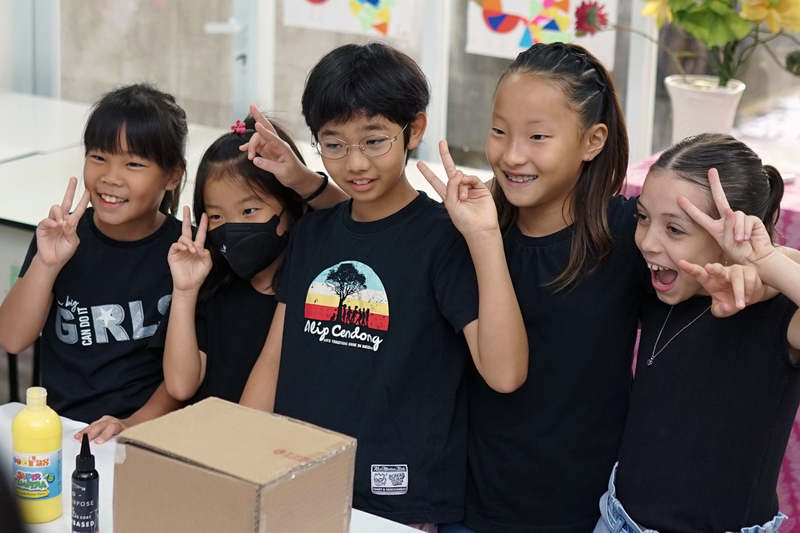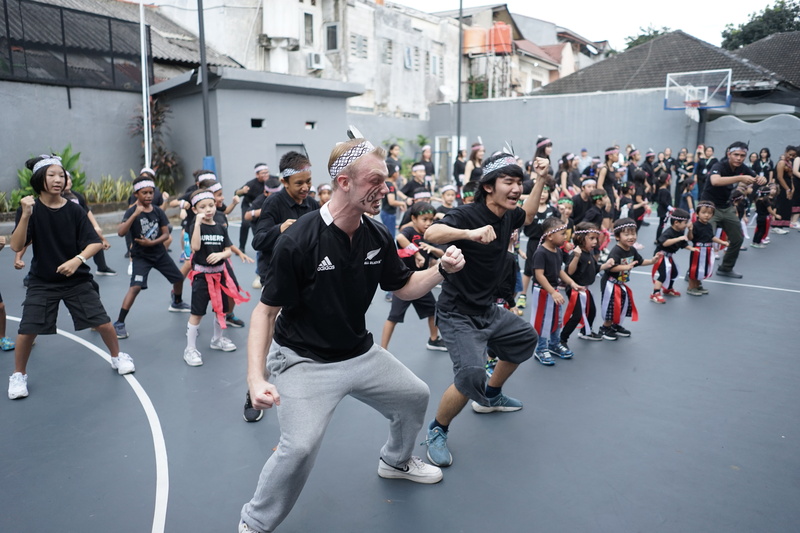From the bustling streets of London to the vibrant culture of Indonesia, Tim Maitland’s journey in education is as diverse as the students he now leads at New Zealand School Jakarta (NZSJ).
With over 13 years in Indonesia, Tim has channelled his love for teaching, sports, and the arts into creating a dynamic, student-centred environment at NZSJ.
Guided by the Maori concept of Ako, which emphasises reciprocal learning, Tim fosters a community where both students and teachers grow together. Now, Tim chats once again with Indonesia Expat to delve into how his extensive experiences have shaped New Zealand School Jakarta’s inclusive and holistic approach to education.
Hello Tim, let’s start with an introduction of yourself.
Hi, My name is Tim. I’m originally from London, UK, but I’ve been living in Indonesia for over 13 years now. I hold a master’s degree in Education from the University of Bath and my passion lies in understanding what motivates young learners and how we can bring out the best in them. I’m also a children’s book writer, which is a creative outlet I really enjoy and allows me to nurture a love for literacy and books in young children. I’m proud to be the Head of School at New Zealand School Jakarta and lucky enough to be surrounded by a fantastic team that share the same values and vision for the school.
In our previous interview, you highlighted the importance of fostering a supportive and inclusive environment at New Zealand School Jakarta (NZSJ). How has your approach evolved since then?
We believe in creating supportive environments where children are recognised for who they are, and we prioritise personalising our approach to teaching and learning in the classroom. Since our last interview, we’ve placed greater emphasis on social-emotional learning to support the overall well-being of both students and teachers. We embrace the concept of kotahitanga, a Māori principle that emphasises unity and collective strength, as we work together to build a cohesive and supportive community. By equipping everyone with the tools to build strong, empathetic relationships and navigate challenges, we’re reinforcing a school culture where every individual feels valued and included.
One of the advantages of NZSJ is its small student-to-teacher ratio. How does this ratio contribute to individualised learning, and what unique benefits have you observed in students’ academic and personal growth as a result?
The small student-to-teacher ratio is certainly a factor in our ability to provide individualised learning. It allows teachers to tailor instruction to meet each student’s needs, offering more personalised feedback and support. This close attention also helps build strong relationships between students and teachers. Students often show increased engagement, a deeper understanding of the concepts being covered and personal growth, including their social and emotional well-being. In addition, the New Zealand Curriculum itself is designed to support this approach, encouraging flexibility and a student-centred focus that fits well with our commitment to personalised learning.
How do you see the role of parents evolving in the educational process at NZSJ?
We see parents taking on a more active and collaborative role in their children’s education, especially through our Whanau Support Group, which is our version of a parent support group. Whānau is a Māori term that means extended family or community, emphasising strong bonds, collective responsibility and systems of support. This group helps build strong communication and trust between parents and the school, making it easier to work together. By keeping parents closely involved and engaged, we create a more connected and supportive environment, which we believe will have a positive impact on the children.
How do you maintain open communication with parents, and how has their feedback influenced school policies or practices?
We maintain open communication with parents through regular meetings, school events, updates from teachers, newsletters and updates on other digital platforms that keep everyone informed and engaged. We actively seek parents’ feedback through surveys and informal conversations which help us identify areas to improve in the school or areas we can work on together. We value feedback because we know that a more responsive and collaborative school will benefit the entire community.
With NZSJ’s firm stance on zero tolerance for bullying, how do you ensure that this policy is effectively communicated and upheld across the school community?
Our small school environment allows us to take proactive and preventative measures to stop bullying before it starts. Our zero-tolerance approach to bullying is clearly communicated and upheld by regularly discussing it with students, staff, and parents. Our close-knit community helps us keep a close eye on interactions and quickly address any issues that come up. By promoting respect and inclusion and staying on top of potential conflicts, we can create a safe and supportive environment for everyone.
In an ever-changing world, what key skills do you believe are essential for students to learn today?
I believe the New Zealand Curriculum’s key competencies—thinking, using language, symbols, and texts, managing self, relating to others, and participating and contributing—are essential. These competencies equip students with the ability to think critically and creatively, communicate effectively, and manage their own learning and behaviour. They also emphasise the importance of building strong relationships and contributing positively to their communities. By developing these skills, students are better prepared for the future, can adapt to change and can rise to new challenges.
Reflecting on the past few years and looking forward, what is your long-term vision for NZSJ?
Our vision is to keep delivering high-quality progressive education that equips our students with the skills and knowledge they need to thrive in an ever-changing world. I also see NZSJ as a place where we maintain our strong community spirit, even as we grow. As we move forward, we will continue to nurture a lifelong love of learning in our students, inspiring them to be curious, compassionate and confident individuals who are well-prepared for the future.
How can our readers get in touch?
Please visit us at www.nzsj.sch.id for information, updates and announcements. Follow us on Instagram at @nzs.jakarta. You can also reach out directly to us by emailing us at info@nzsj.sch.id.




